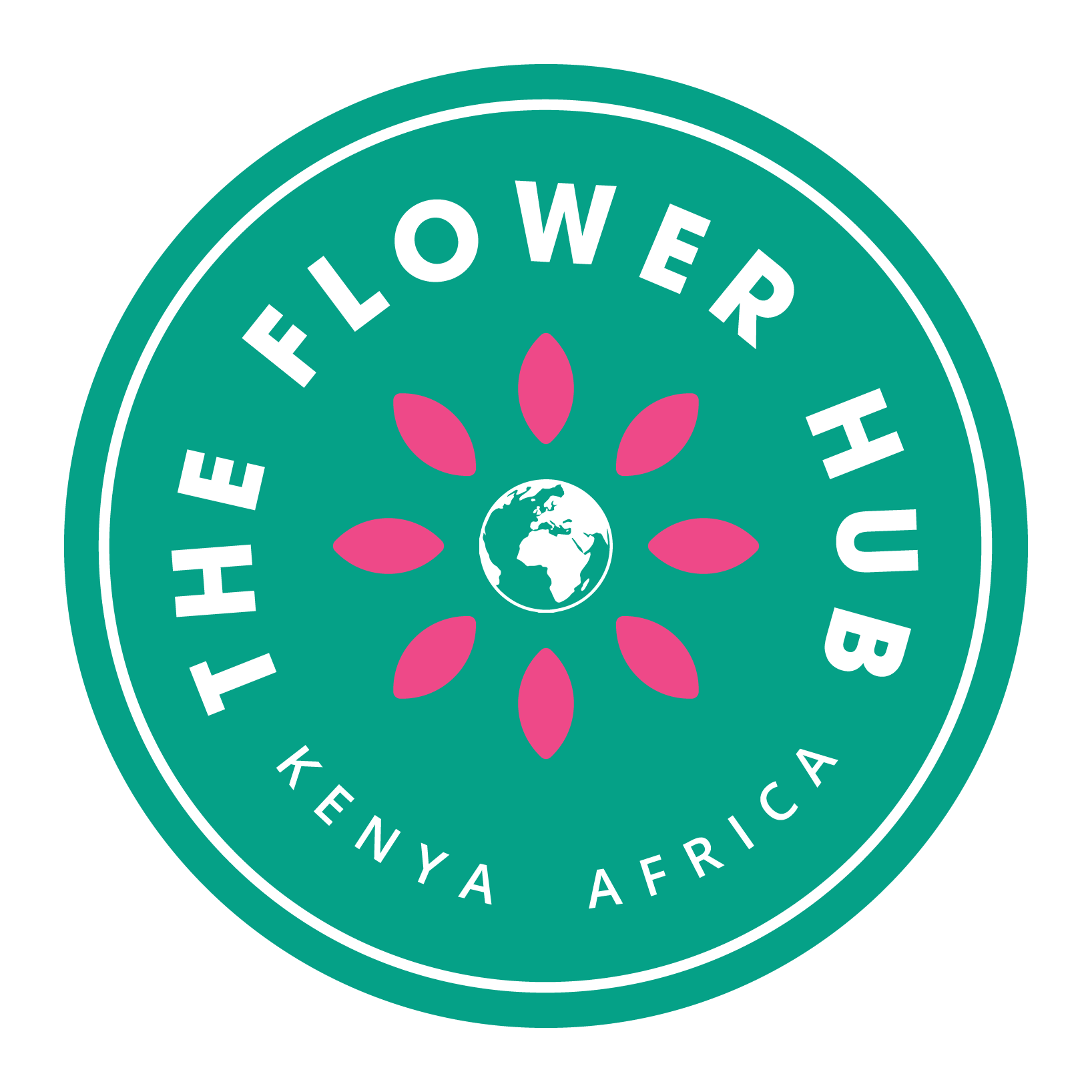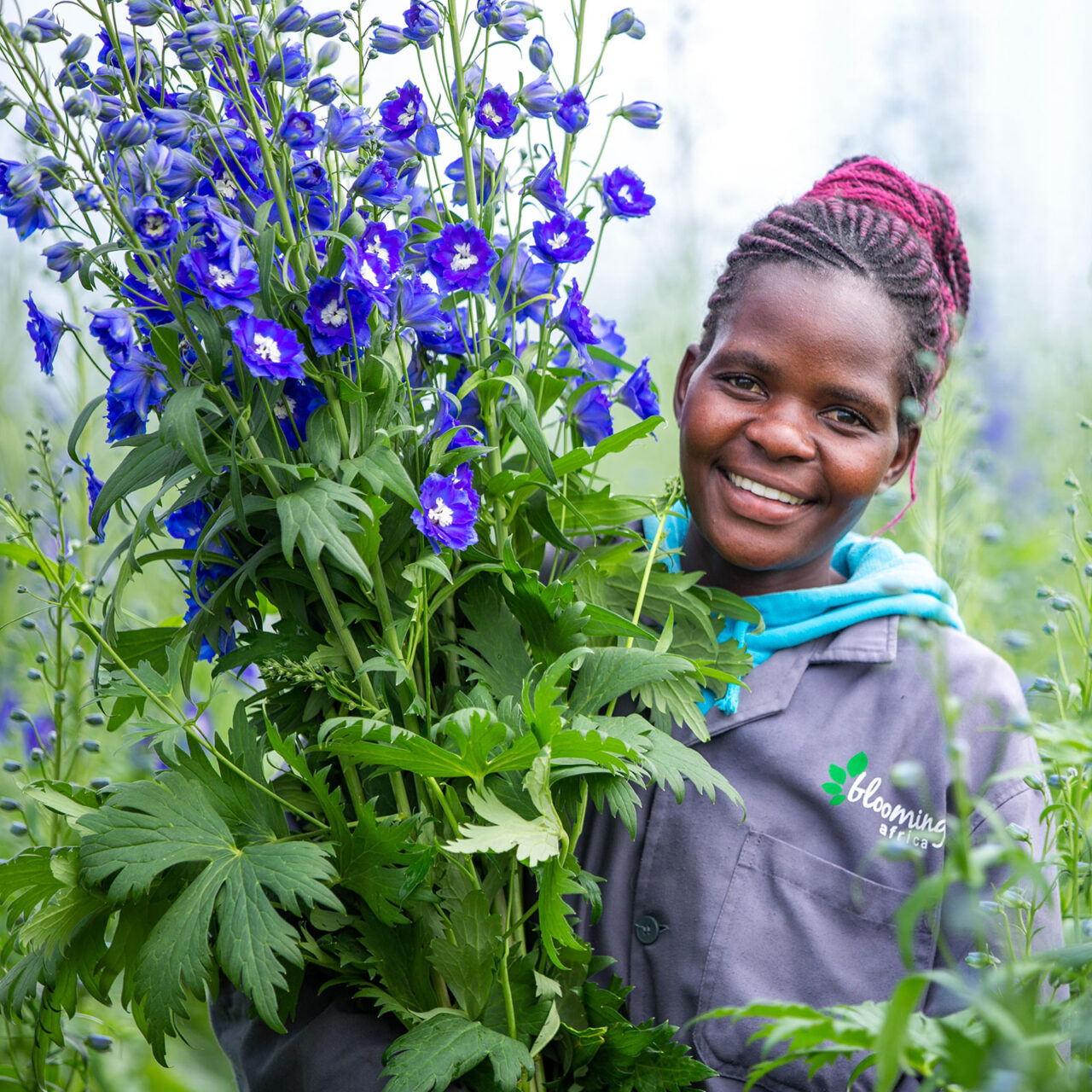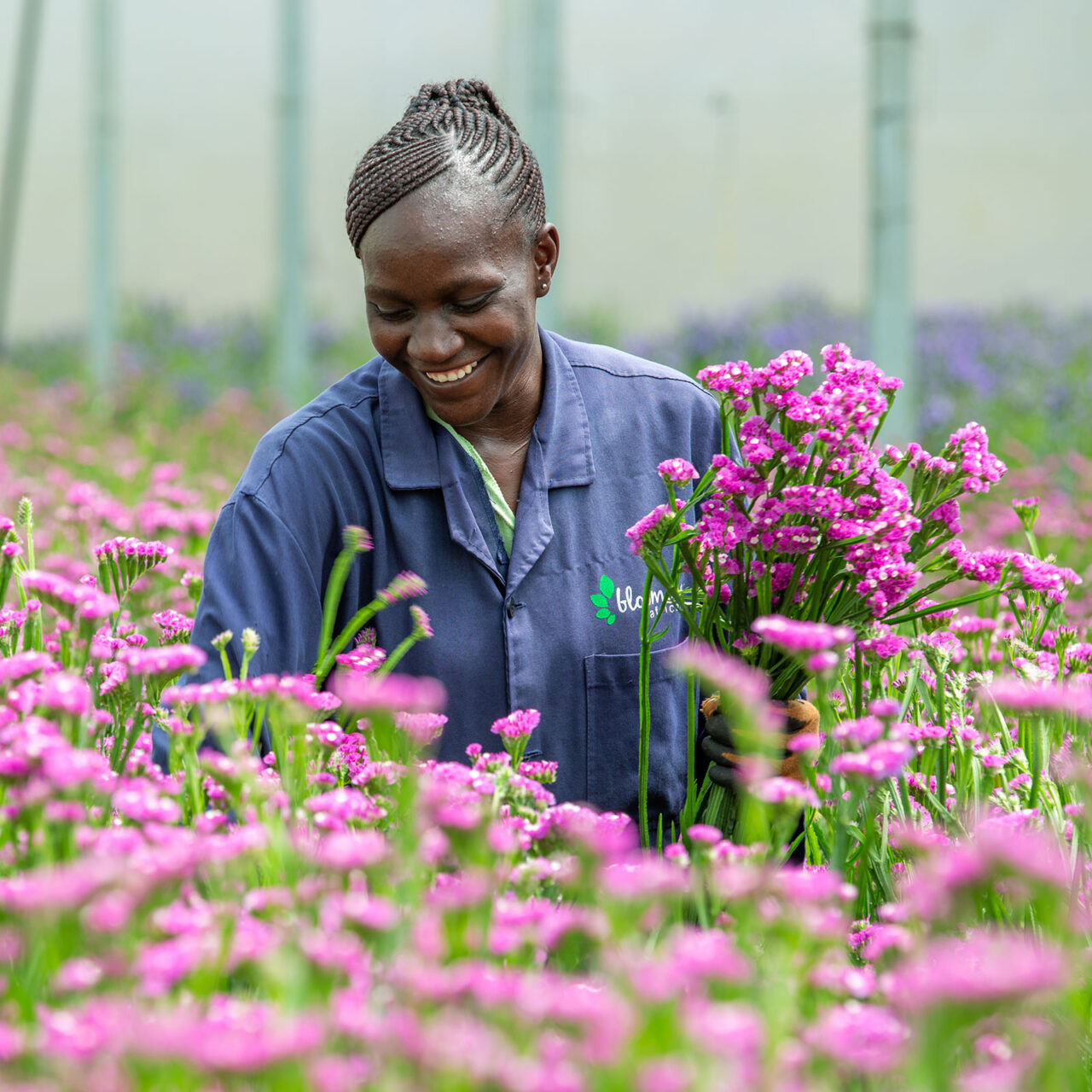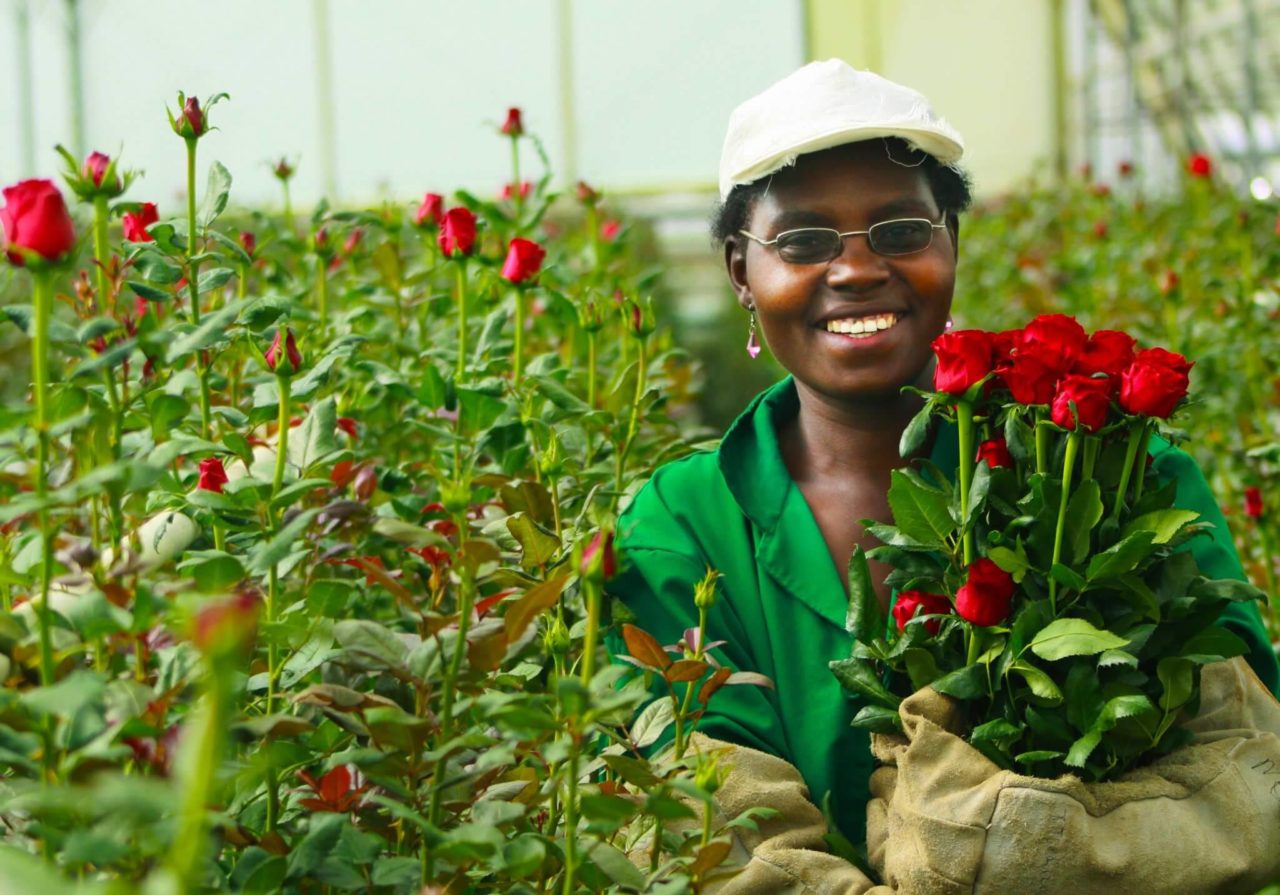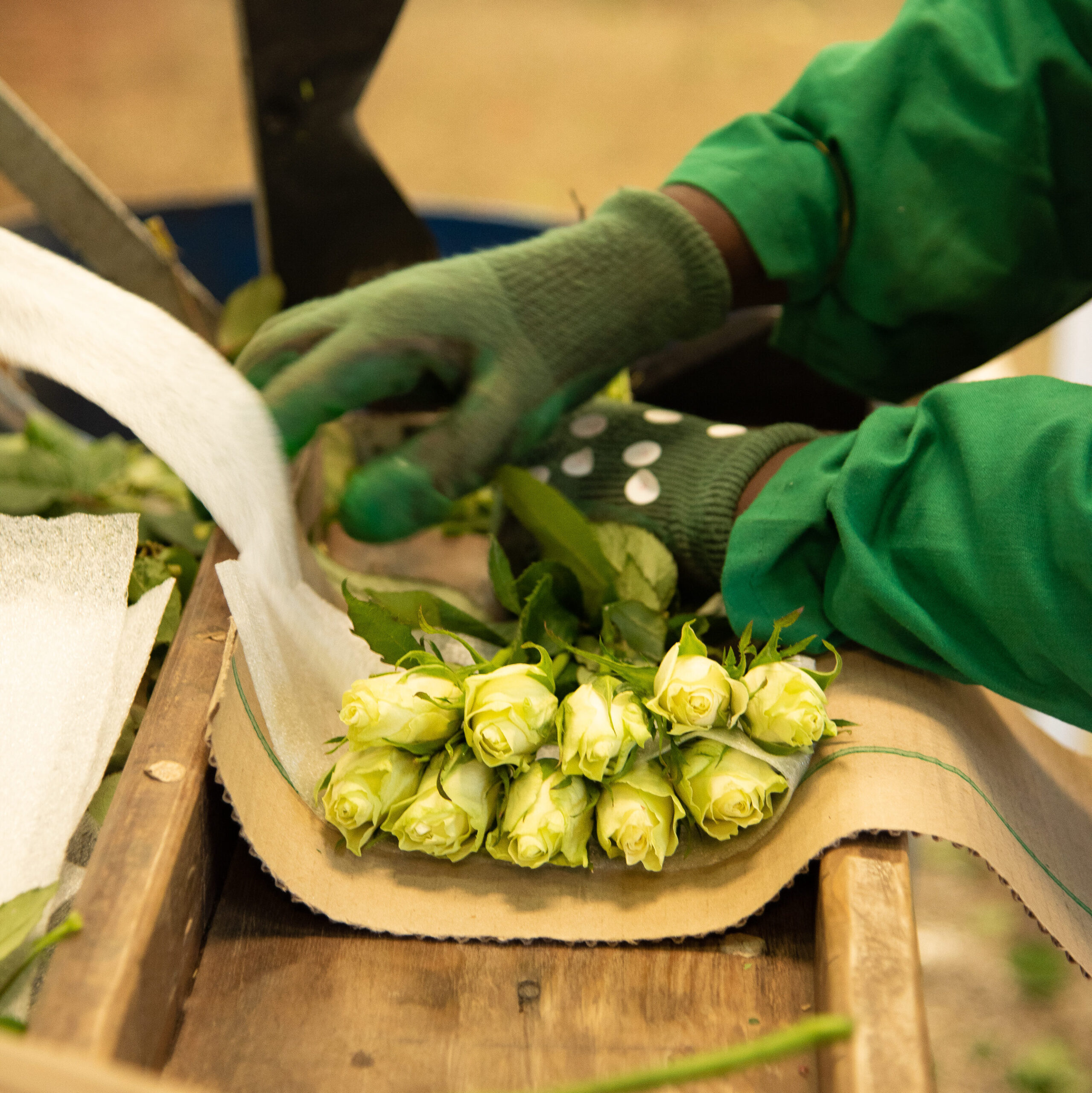Last month we held our bi-annual company meeting- where the entire TFH team get together for a company update, a chance to see everyone and have lunch together. During the Q and A at the end of the session Head of Technical, Rowan Godfrey asked shareholder Peter Szapary, from Wildfire Flowers, about his view on the sustainability of growing flowers at Wildfire.
Peter had the whole team enthralled with his inspiring speech on the changes the farm is making to how they produce cut flowers. The focus was on improving soil organic matter content in outdoor crops, and how this adds benefits to all types of growing, not just flowers. This subject continued to dominate the remainder of the session, generating real interest across all areas of the business.
Regenerative Cover Cropping
Peter described how the farm now uses an 8-month regenerative cover crop between Hypericum plantings to improve the soil organic matter (OM). This mix contains anywhere up to 20 species of plants & flowers (see below) specially formulated to rebuild the soil’s microbiome. This not only builds the OM content, the roots also breaks up any compaction below the surface. Since doing so they have seen an increase of up to 30cm to the depth of root presence below the surface of the soil.
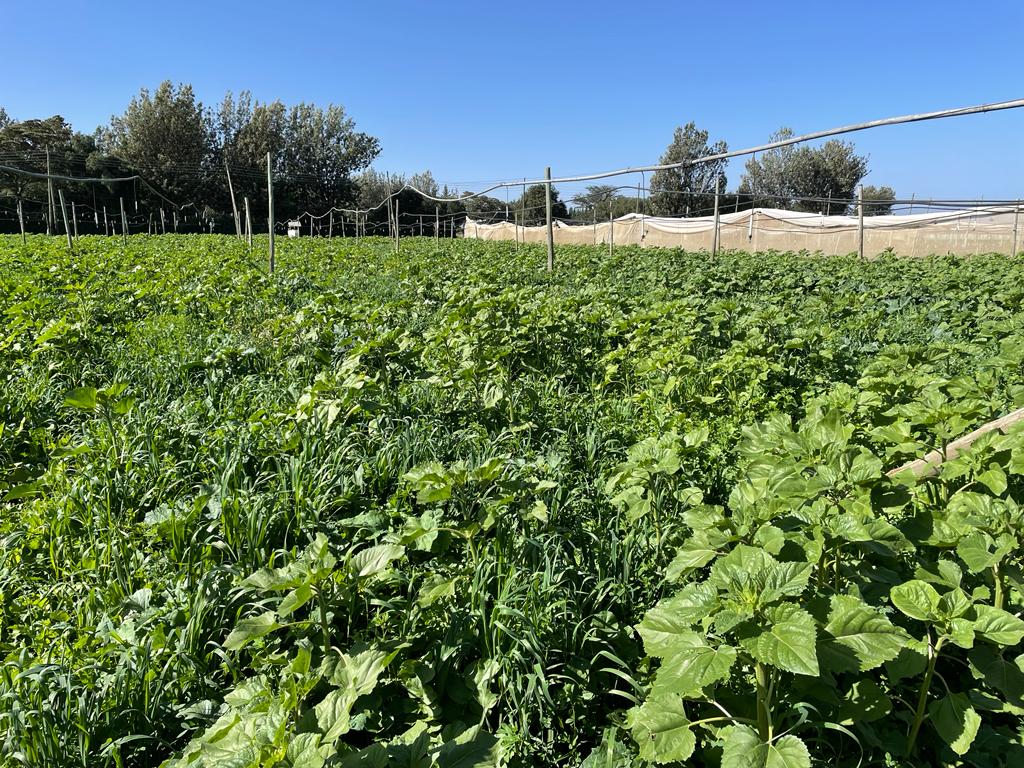
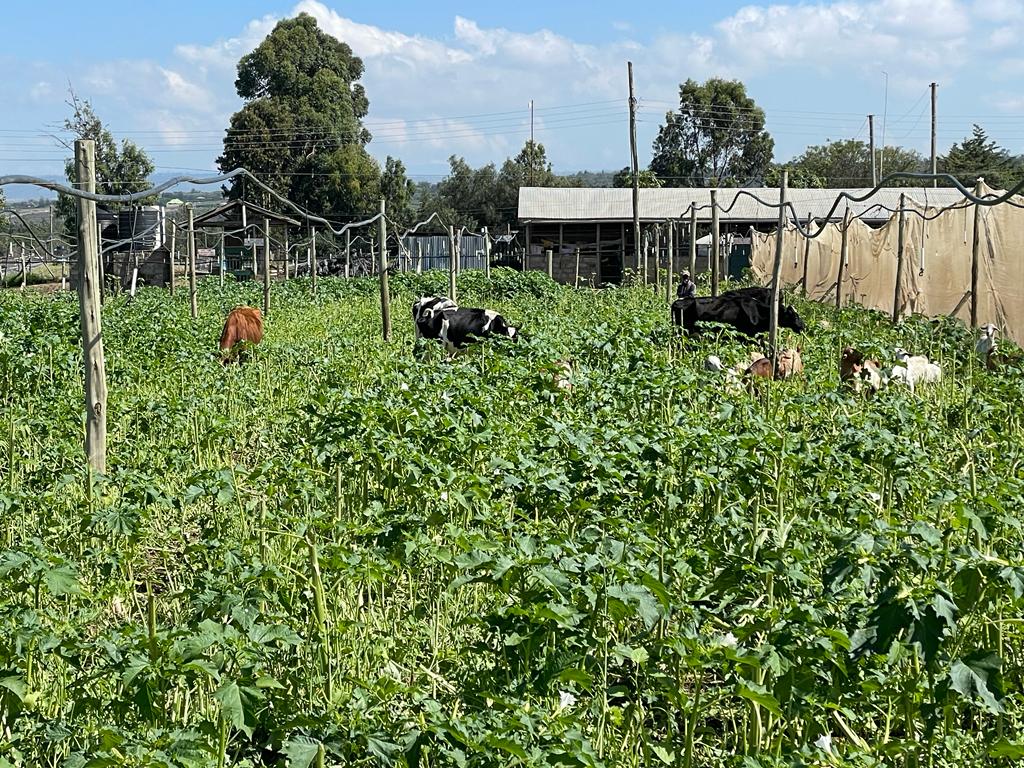
Previously the land would have been ploughed between crops to ‘break up the soil’, this actually created a hard compaction pan that Hypericum was then unable to grow through. This pan was clearly evident when a consultant came to the farm and dug pits in various places to review the soil structure: the consultant could show exactly at what level ploughing had taken place. This change to using cover crops has eliminated the requirement for mechanical intervention in the soil!
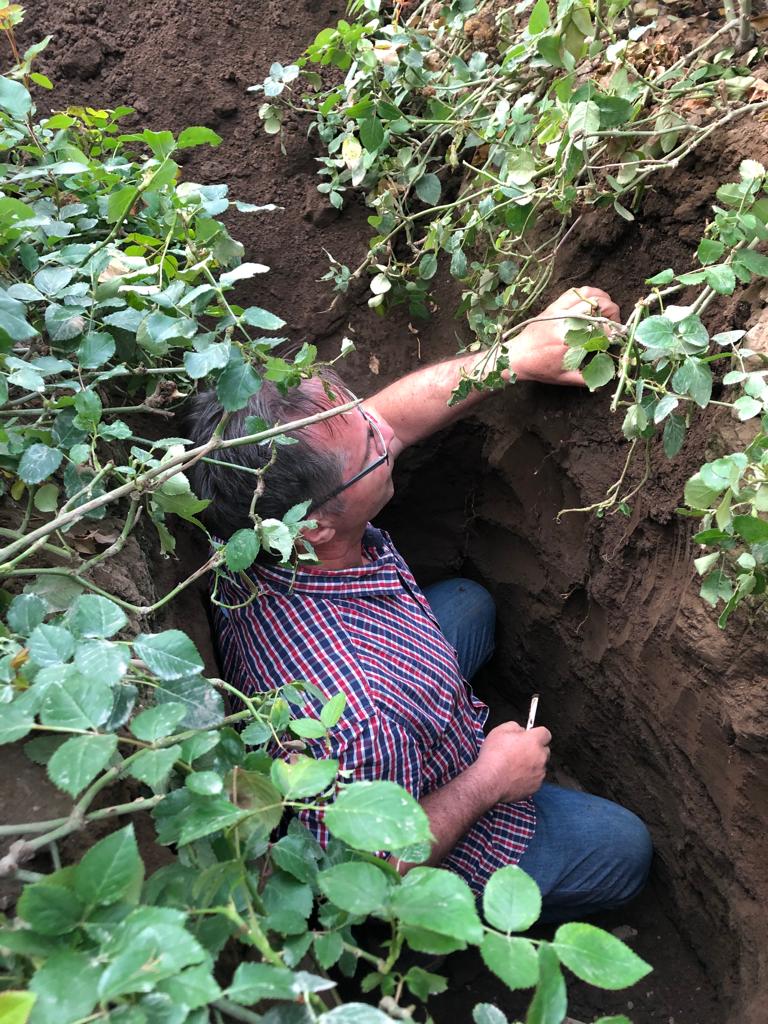
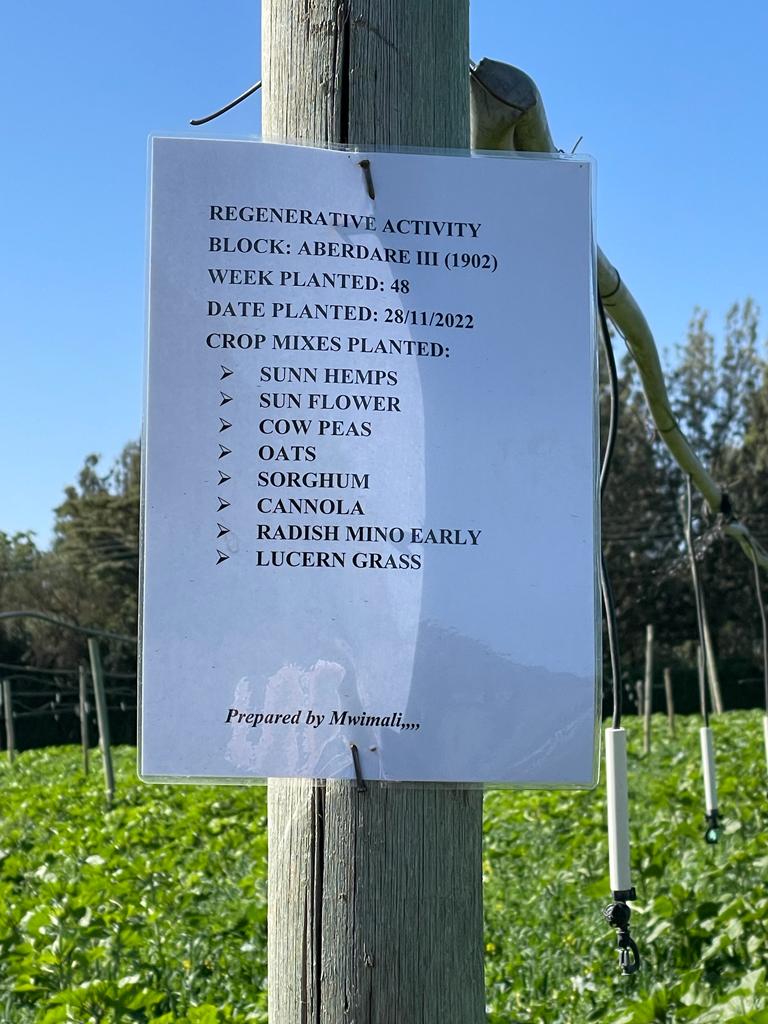
When the regenerative break crop is mature, prior to flowering, it is mob grazed in sections by cows, and followed by sheep. The animals helps to trample the crop into the ground incorporating the organic matter from the plants, whilst also contributing manure. Wildfire are looking to adding chickens to the farm as a natural form of pest control and again a method of breaking down organic matter, returning it to the soil and contributing manure. Hypericum is currently grown in beds which are manually formed, however Wildfire are trialling the option of direct sticking cuttings through the remains of the cover crop.
Composting and Vermicomposting
In addition to the above, Wildfire also have extensive composting facilities including Vermicomposting. Both composts use all the waste from the farm and from the farm’s canteen to turn it into either Compost or Vermicompost – with differing uses.
With compost – often built in ‘rows’, the organic matter is turned regularly to aerate it and speed up the composting process, (see image) whereby the composted material can be applied to both the Rose & Hypericum beds to boost their organic matter.
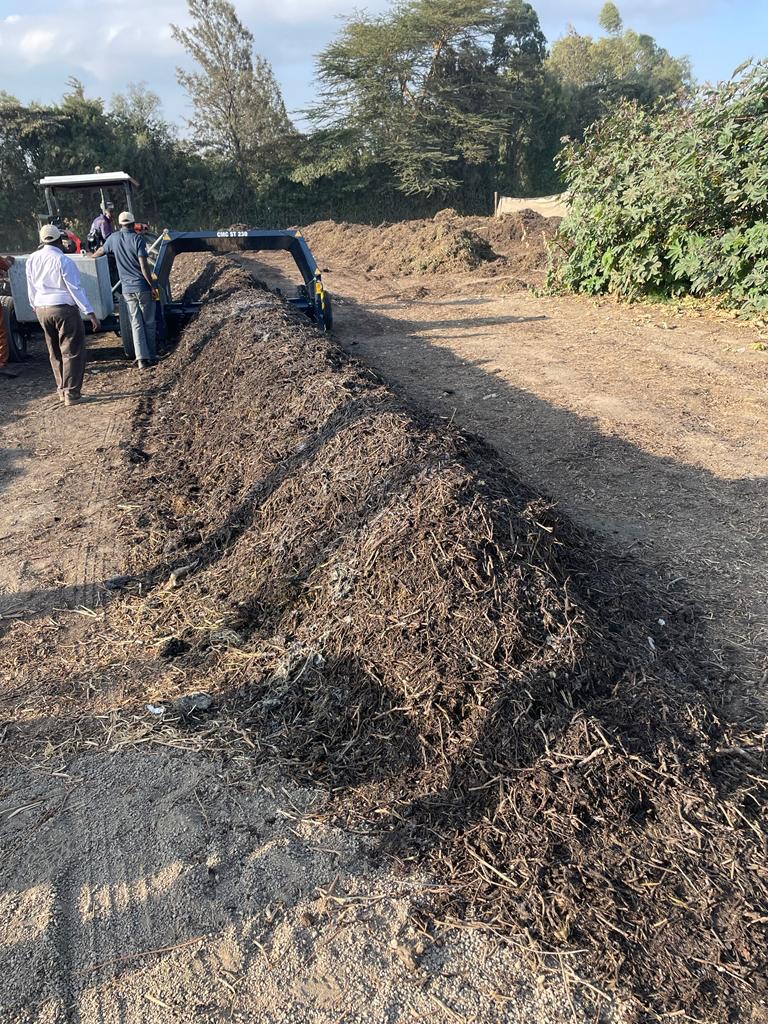
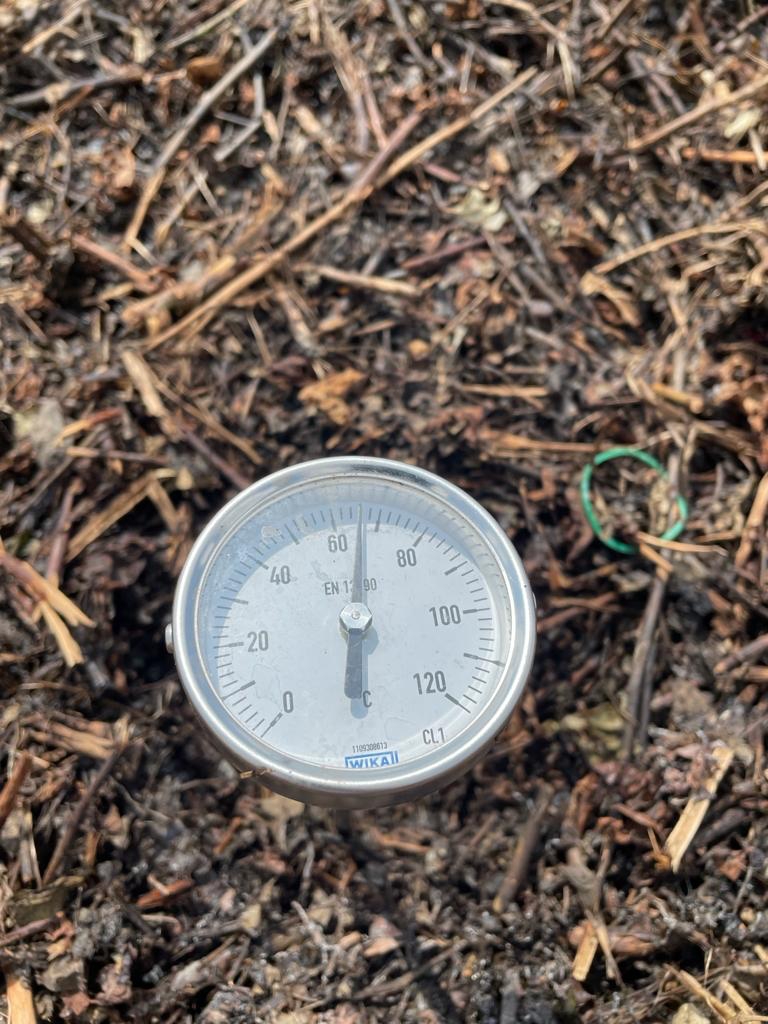
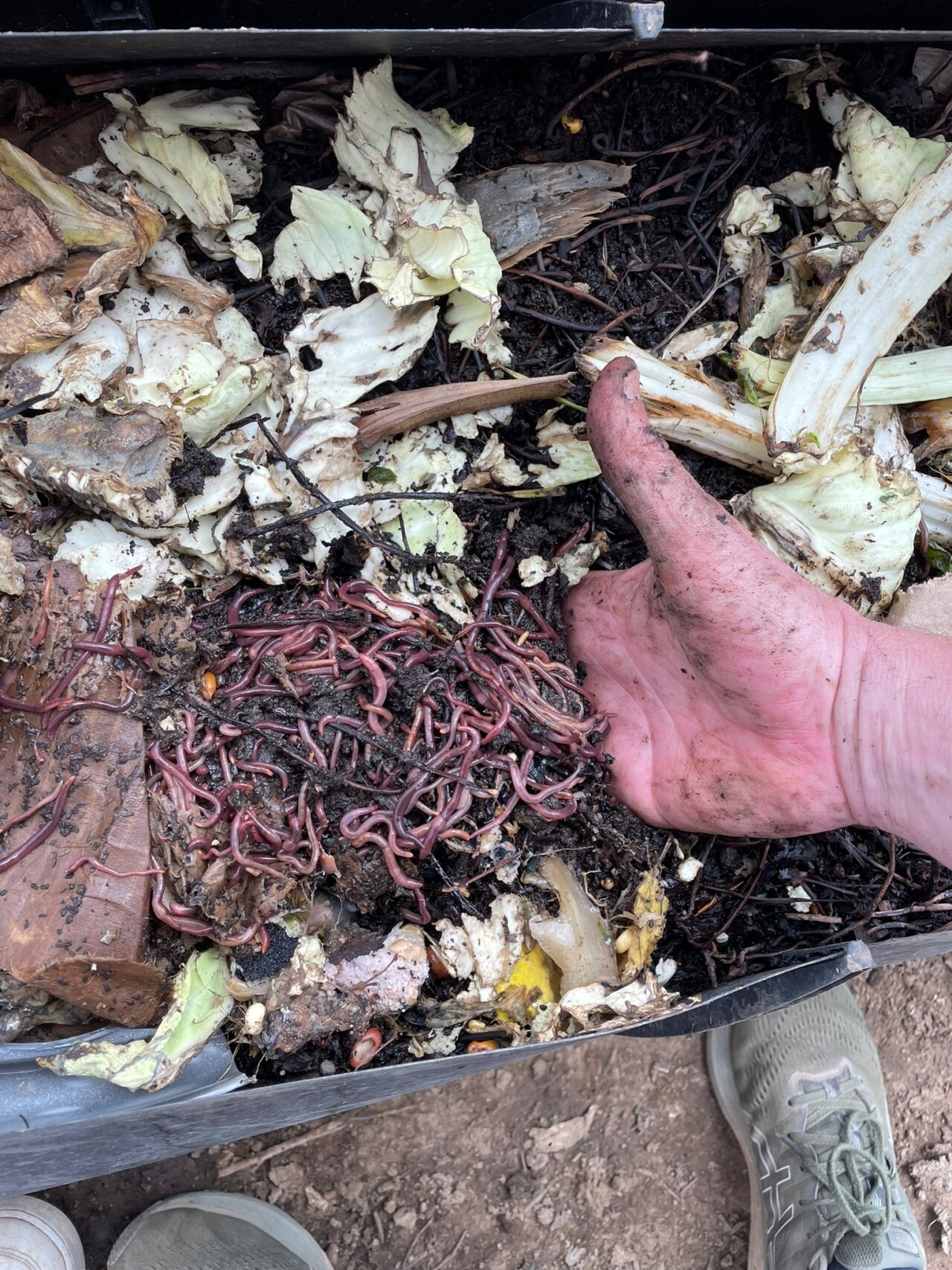
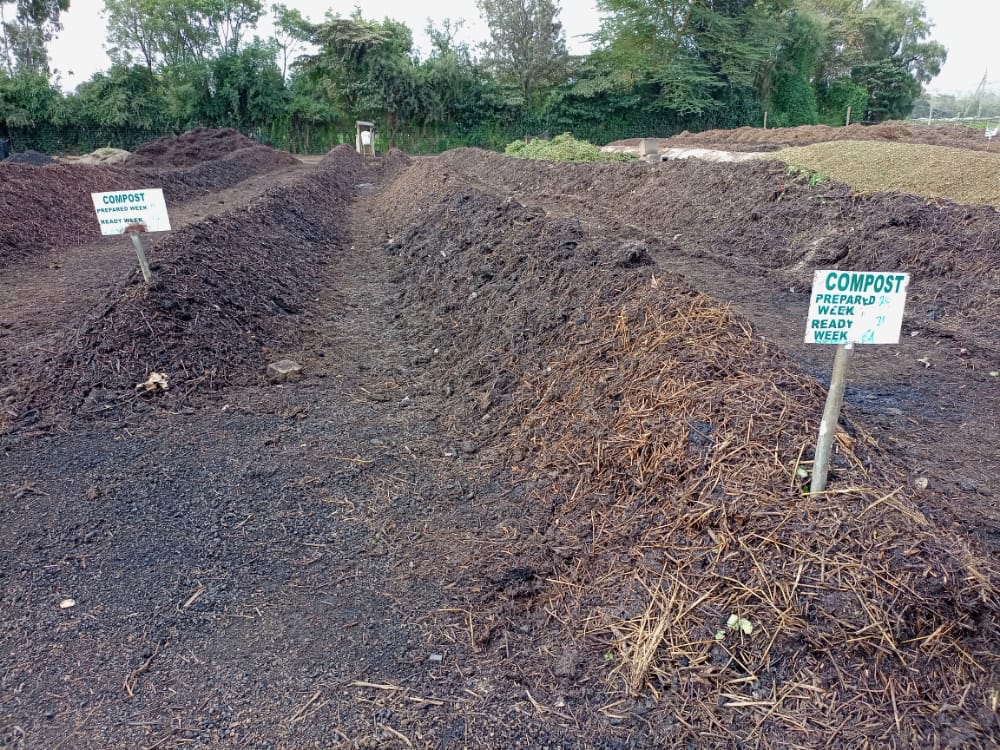
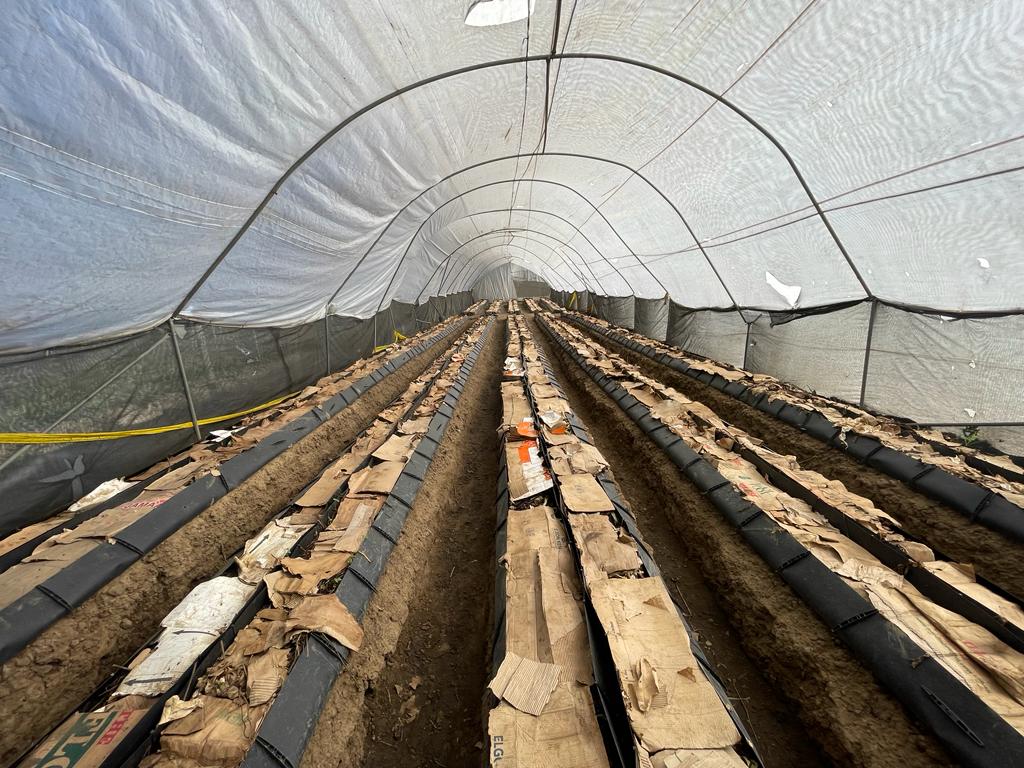
Vermicomposting (using Worms) is layered in slightly angled trays. The worms produce a vermi-liquid (also known as ‘worm tea’!) which is used as part of the fertiliser regime at the farm. All of this means that over time Wildfire aims to be free from ‘chemically produced’ fertiliser on the farm’s Hypericum production (Phase 1). The Rose Production is still under trials and review, with the hope that if successful it to will change to natural fertilisers in Phase 2.
For more information on Vermicomposting see our blog on Sosiani farm here.
One of the key tenets of Regenerative Horticulture is that the earth must be covered and have living roots in it at all times. To this end Wildfire are currently researching the most appropriate Grasses to plant in their pathways. Not only may this provide food for local livestock (reducing grazing pressure outside the farm) and manure for the farm, but also grass has the ability to sequester Carbon back into the soil.
How far have Cut Flowers in Kenya come along this path?
We now have many growers who are actively pursuing Regenerative Horticulture practices to improve both the quality of the crop that they sell but most importantly the environment they work in. We are proud to say that Peter Szapary & Wildfire Flowers Ltd. are leading with the front runners in Kenyan Regenerative Horticulture and we are keen to support in any way possible as we proceed on this journey together.
By Rowan Godfrey, Head of Technical
